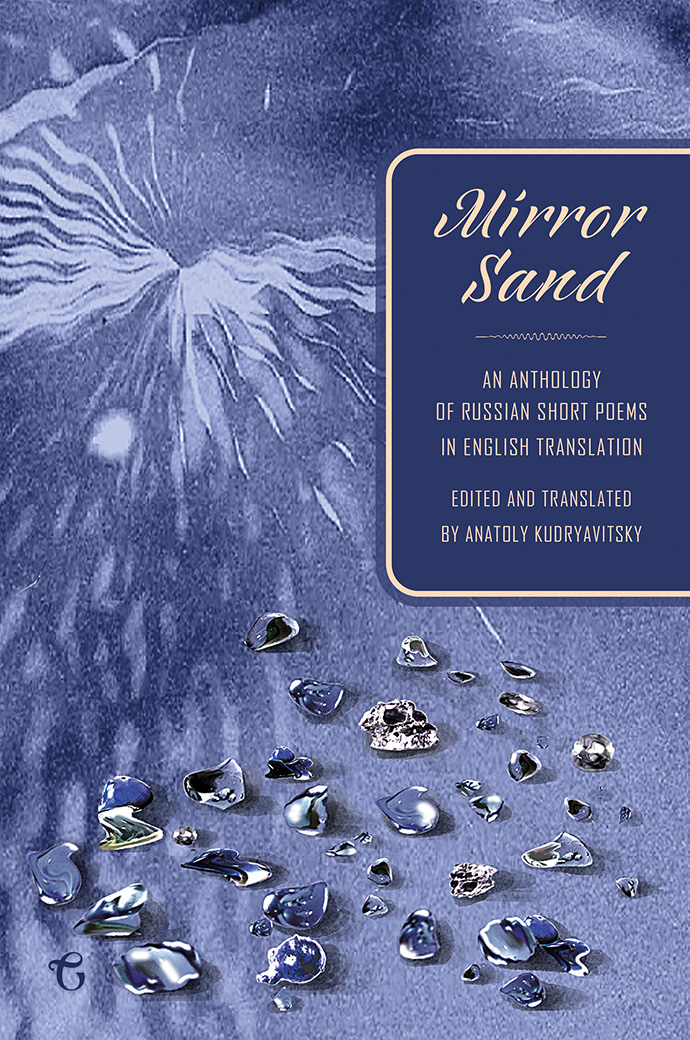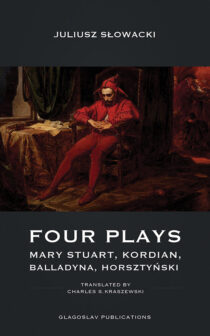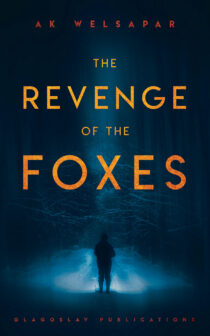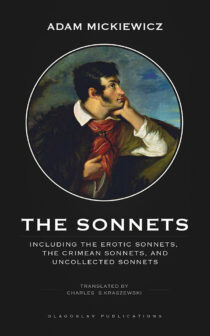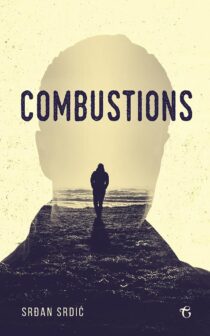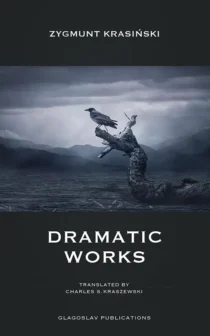Mirror Sand: An Anthology of Russian Short Poems
€9.95 – €25.50Price range: €9.95 through €25.50
BILINGUAL EDITION (Paperback, Hardcover and PDF only)
Edited and translated by Anatoly Kudryavitsky
This anthology shows Russia looking back at itself, and reveals the post-World-War Russian reality from the perspective of some of the best Russian creative minds. Here we find a poetry of dissent and of quiet observation, of fierce emotions, and of deep inner thoughts.
Edited, translated, and introduced by Anatoly Kudryavitsky, this bilingual anthology presents Russian short poems of the last half-century. It showcases thirty poets from Russia, and displays a variety of works by authors who all come from different backgrounds. Some of them are well-known not only locally but also internationally due to festival appearances and translations into European languages; among them are Gennady Aigi, Gennady Alexeyev, Vladimir Aristov, Sergey Biryukov, Konstantin Kedrov, Igor Kholin, Viktor Krivulin, Vsevolod Nekrasov, Genrikh Sapgir, and Sergey Stratanovsky. The next Russian poetic generation also features prominently in the collection. Such poets as Tatyana Grauz, Dmitri Grigoriev, Alexander Makarov-Krotkov, Yuri Milorava, Asya Shneiderman and Alina Vitukhnovskaya are the ones Russians like to read today. This anthology shows Russia looking back at itself, and reveals the post-World-War Russian reality from the perspective of some of the best Russian creative minds. Here we find a poetry of dissent and of quiet observation, of fierce emotions, and of deep inner thoughts.
[real3dflipbook id=’72’]
| Dimensions | N/A |
|---|---|
| Pages | 386 pages |
| Publication date | 11th January 2018 |
| Book Format | Hardcover, Paperback, EPUB, Kindle, PDF |
Authors
Gennady Aigi (1934–2006) was born in the Chuvash Republic, and lived in Moscow. His translations of French poetry into the Chuvash language brought him recognition at the beginning of his career as a writer. However his unusual work was not welcomed in Russian periodicals and publishing houses. After perestroika, he published many critically acclaimed books of his poetry in Russian and Chuvash, as well as numerous essays and translations. His poems were translated into many languages. Without exaggeration, he was the most celebrated Russian poet of the time. A book of his poems in French translation entitled Veronica’s Notebook was published in Paris in 1984. Peter France of Edinburgh published two books of his translations from Aigi into English, much appreciated. Aigi was awarded the Golden Wreath of Struga (Macedonia), the French Academy Translators’ Award and the Andrey Belyi Prize for Poetry (1987). In 2000, he was awarded the first ever Boris Paternak Prize for Poetry.
Ivan Akhmetiev was born in Moscow in 1950. Educated at Moscow State University, where he studied physics, he began to write at the end of 1960s. Until 1989 only one of his poems was published in Russia. Since then many of his poems have appeared in literary magazines in Russia and abroad. Critics defined him as a minimalist and miniaturist. He has published four poetry collections entitled Poems, only Poems (1993), Nine Years (2001), Amores: Poems 1966-2002 (2002) and Never Mind It Will Turn Out All Right (2011). Some of his miniatures have been translated into German and English.
Margarita Al (pen name of Margarita Almuhametova) was born in 1959 in Alma-Aty, Kazakhstan, and now lives in Moscow. A poet, an artist and a graphic designer, she runs DOOS Books, which publishes The PO Journal and poetry books. She is a member of the DOOS group of poets and of the Academy of Zaum association of Futurist poets, and has published two collections of her poetry, Stating the Denial (with Konstantin Kedrov, 2009) and Mirazhi Zn (2014). Margarita Al was awarded the David Burluk Prize for a life-long commitment to experimental poetry.
Maria Alekhina was born in 1988 in Moscow. She is a graduate of the Institute of Journalism and Creative Writing in Moscow, a poet and a musician, one of the founding members of the band Pussy Riot, an environmental activist with Greenpeace Russia and a human rights activist. On August 17, 2012, she was convicted of “hooliganism motivated by religious hatred” for a performance in Moscow’s Cathedral of Christ the Saviour and sentenced to two years imprisonment. Amnesty International named her a prisoner of conscience due to “the severity of the response of the Russian authorities”. Her collection titled Poems and Essays appeared in Moscow in 2012; she has also published a memoir, Riot Days (2017; an English translation is due from Allen Lane / Penguin Books). In 2013, she was nominated for the Politprosvet Journalism Award, and in 2014 was the recipient of The Hannah Arendt Prize for Political Thought.
Gennady Alexeyev (1932–1987) lived in St. Petersburg, and lectured on history of art at St. Petersburg University. He was the first to introduce vers libre (free-verse) in St. Petersburg. Writing in that style as early as 1953, he published his first poem in 1962, but had difficulty publishing poetry thereafter as it was deemed too “different”. During his life time four collections of his poems appeared in Russia. Two more were published after his death, the latest one being Me and the City (1991). Two volumes of his Collected Poems were also published inSt. Petersburg posthumously. Undoubtedly, he was one of the most importantSt. Petersburg poets of the second half of the last century; arguably, the most underestimated.
Vladimir Aristov was born in 1950 in Moscow, where he still lives. Educated at Moscow Institute of Technology and Physics, he started writing poetry at the end of the 1970s. He was a member of the so-called Poetry Club circle, which included predominantly ironic poets. His poems, essays and short stories remained unpublished until the years of perestroika. Since then, ten critically acclaimed collections of his poetry, including Moving Away from this Winter (1992), Private Follies of Things(1997), have appeared in Russia, as well as his novel, The Witness’s Prophecy (2004), Names and Faces in the Metro (2011), Open Backyards (2016). His short stories were published in Zhuzhukiny Deti, the anthology of Russian short stories and prose miniatures written in the second half of the last century (2000). His work has been translated into several European languages.
Sergey Biryukov was born in 1950 in Tambov. Having lived in Moscow, he is currently based in Halle, Germany. Having started writing poetry at the end of 1960s, he saw his first poem published in a literary magazine only in 1989. Since then, he has published many collections of his poems; the first of them, The Muse of Zaum (1980) and the most recent The Run of Books and Calling (both 2015). He also published the monograph entitled Zevgma: Russian Poetry, Mannerism to Postmodernism(1994), as well as a number of books on the history and theoretical aspects of Russian avant-garde. He was the founder and President of theAcademy ofZaum, which includes Futurist poets from everywhere inRussia. His work has been translated into several European languages. He won first prize at the Berlin International Poetry Competition, and was the recipient of the Alexey Kruchenykh Poetry Award. He read from his poems at several international poetry festivals.
Vladimir Burich (1932–1994) was born in Shakhty, Russia, and grew up in Kharkiv, Ukraine. In 1955, he graduated from Moscow State University, where he studied Journalism. He later lived in Moscow working as an editor for the Molodaya Gvardiya Publishing House. His poetry was first published in 1961, but only achieved a certain degree of recognition in the 1980s and ‘90s when a few anthologies of Russian free verse poetry were published, White Square (1988), Time X (1989) and The Anthology of Russian Vers Libre (1991). Burich also wrote essays on free verse poetry in the times when it was relatively unknown in theUSSR. He translated contemporary Polish, Czech and Serbian poetry into Russian. He died inStruga,Macedonia, during the Poetry Evenings festival, to which he was invited to read from his poems.
Vladimir Earle (pen name of Vladimir Gorbunov) was born in St. Petersburg in 1947. Having worked as a fireman, a laboratory assistant and a watchman, he now works as a librarian. He started writing poetry in 1962 as a fifteen-year-old. In a few years’ time he became a member of the so-called Helenooct group of young poets that existed between 1966 and 1971. His poems were widely published in Samizdat and in the Western Russian-language magazines. Since the years of perestroika he has published three critically acclaimed collections of his rather experimental poetry, Helenooctism (1993), The Grass, the Grass (1995), The Book of King (2009), Yesterday and The Day after Tomorrow (2012), as well as a book of non-fiction, In Search of the Lost Xeif (1999), as well as many essays on the Russian literature of the twentieth century. A volume of his Collected Poems appeared in Saint-Petersburg in 2015. Among the authors he has translated into Russian are Samuel Beckett and Franz Kafka. He was awarded the Andrey Belyi Prize for Poetry (1986) and the David Burliuk Prize for life-long commitment to experimental poetry (1991).
Mikhail Finerman (1946–2003) was born in Moscow. Having graduated from Moscow State University of Printing Arts, he worked as an engineer, a tour-guide and a translator. In the early1980s he joined the poetic movement titled Personae. He described himself as a Zen Buddhist. Most of his poems were gathered together and published posthumously in his only collection, The Finch in Flight (Moscow, 1995), to critical acclaim. He also translated Slovakian poetry into Russian, and published an essay on Russian free verse.
Ruslan Galimov (1946–1982) was a Tatar poet born in Chistopol and educated inMoscow. During his life-time, only a few of his poems appeared in Russian literary magazines and anthologies. He died of leukaemia in 1982. Three collections of his poems and short stories have been published posthumously and garnered critical acclaim. He is regarded as a prominent writer of Russian-language free-verse poetry.
Tatiana Grauz (pen name of Tatyana Griolooz) was born in Chelyabinsk in 1964. She was educated at the Moscow Medical Academy and at the Russian Academy of Theatre Arts, and worked in Moscow as a theatre director, occasionally appearing on stage and in feature films as an actress. She has published three collections of her textual and visual poems, Too Much Space (2004), More Transparent than the Sky (2005) and Forest-Lake-Garden (2014). Her poems have been translated into English, Swedish, Japanese andChuvash. She won the David Burliuk Prize for life-long commitment to experimental poetry.
Dmitry Grigoriev was born in 1960 in St. Petersburg where he still lives. A graduate of Leningrad State University, he travelled the world extensively, and wrote poetry, however he wasn’t allowed to publish anything until perestroika. Some of his poems, though, found their way onto the pages of a few American Russian-language magazines. At the beginning of 1990s three collections of his poems appeared in St. Petersburg. He is now regarded as one of the most important St. Petersburg poets of his generation. A volume of his Selected Unpublished Poems came out in 1992. Since then, he has published three novels, a book of his short stories, a travel book and seven collections of poetry, including Crossroads (1995), Fiery Yard-Keeper (2005), The Other Photographer (2009) and New Fairy Tales (2011).
Elena Katsuba was born in 1946 in Kamensk near Rostov, and educated at Kazan State University. She has lived in Moscow for many years working as a journalist. Her first poem was published in 1963. Since then her poems and short stories have appeared only in unofficial periodicals in Russia (samizdat) and abroad. Since 1999, she has published three collections of poems, including eR-eL(2002), Igr Rai (2003), The Testimony of the Moon (2008) and Those Who Stare at the Flame (2014), as well as a dictionary of palindromes. She was the founding member of the DOOS group of poets (with Konstantin Kedrov).
Konstantin Kedrov was born in 1942 in Moscow, and educated at Moscow University. Poet, essayist and philosopher, he started writing poetry at the end of the 1950s. In 1984 he founded the DOOS group of poets (with Elena Katsuba). He is editor of the Moscow-based Zhurnal Poetov/ The Po Journal. Since the beginning of perestroika he has published many collections of his poems, including Computer of Love (1990), Vroutselet (1993), The Gamut of Hamlet’s Bodies (1994), Ulysses and Navsikaya (1997), Sam ist Dat (2003) and The Conductor of Silence (2009). A volume of his collected poems entitled Or appeared in Moscow in 2002. He has also published three books of his essays on literature and philosophy, including Poetic Cosmos (1989). In 2003, he was the recipient of the GRAMMY.ru Poet of the Year Award.
Igor Kholin (1920–1999) was born and lived in Moscow. In his youth, he was employed as a waiter, then joined the Russian Army, fought in World War II, was wounded, and retired when the war ended. At the beginning of the 1950s he became a member of the now famous Lianozovo group of poets and painters. Under the Communists, his poems appeared only in émigré magazines, such as Strelets/The Archer and Tretya Volna/Third Wave. In 1989, the first book of his poems entitled Poems with Dedications was published in Paris in Russian and subsequently reprinted in Moscow. His next collection appeared in 1995. At the end of the 1990s, he published a number of his short stories. After his death in 1999, an ample volume of his Collected Poems appeared in Moscow, followed by another big volume, this time of his Collected Stories.
Viktor Krivulin (1944–2001) was born in Krasnodon, Ukraine. From 1947 he lived in St. Petersburg. He was educated at Leningrad State University, where he studied Russian and Italian literature. In the 1970s, he was closely associated with two of the Russian samizdat magazines, 37 and Severnaya Pochta/Northern Post, where he published his poems and essays. He belonged to the so-called New Leningrad school of poetry, which also included Joseph Brodsky, Elena Shvarts and Sergey Stratanovsky. After perestroika, he became involved in politics, and was at the head of the St. Petersburg branch of Democratic Russia, the pro-democracy political party. Among his critically acclaimed collections are A Concert of Requests (1993), Borderland (1994), Bathing in Jordan(1998), and Poems of the Jubilee Year (2001). His poems have been translated into many European languages. In 1978, he was awarded the first ever Andrey Belyi Prize for Poetry.
Anatoly Kudryavitsky was born in 1954 in Moscow to a Polish father and half-Irish mother. Having lived in Russia and Germany, he has been based in Dublin since the beginning of the century. Educated at Moscow Medical University, he later worked as a researcher in immunology, a journalist and a literary translator. Since 1989 he has published three novels, a number of short stories, seven collections of his Russian poems, the most recent being The Book of Gimmicks: Collected Prose Poems (Evgeny Stepanov Publishing, 2017), as well as a collection of his English poems entitled Shadow of Time (Goldsmith Press, 2005) and three collections of his English-language haiku. An anthology of contemporary German-language poetry in his translations to English entitled Coloured Handprints has been published by Dedalus Press in 2015; an anthology of contemporary Ukrainian poetry in his translation to English entitled The Frontier has been published by Glagoslav Publications in 2017. He won the David Burliuk Prize for life-long commitment to experimental poetry (2010).
Alexander Makarov-Krotkov (pen name of Alexander Makarov) was born in 1959 in Tyumen. He now lives in Moscow, and works as a journalist. He started writing poetry in the 1980s, and his first poem appeared in a literary magazine in 1989. Since then, he has published three collections of his poetry miniatures including Deserter (1995), Nevertheless (2002), Concrete Sonnet (2004), And Then Everywhere (2007). He read from his poems at literary festivals inGermany andItaly. His work has been translated into several European languages, and he was awarded the Grand Prix at the International Poetry Festival inSalerno,Italy (1992).
Arvo Mets (1937–1997) was born in Estonia, and educated at St. Petersburg University and at the Literary Institute in Moscow. He lived most of his life in Moscow where he edited several literary magazines, including Novy Mir/New World. He started writing poetry in the early 1960s, and also translated Estonian poetry into Russian. Three critically acclaimed collections of his poetry miniatures were published in Moscow and Tallinn. His Selected Poems appeared inMoscow in 1992. His poems have since been translated into eight European languages.
Yuri Milorava was born in 1952 in Tbilisi, Georgia. A graduate of Tbilisi University for Foreign Languages, he lived in Moscow in 1990s, and now is living in the USA. From the 1980s his poems appeared in émigré Russian and Ukrainian periodicals, e.g. in The Continent, Chernovik and Khreschatyk, and later in The Anthology of Russian Vers Libre (1991). He has published three collections of his poems, Instead (1996), Distaff Angel (2003) and Ovejo (2016), as well as his memoir about Viktor Shklovsky. He has also translated French and Georgian poetry into Russian.
Vsevolod Nekrasov (1934–2009) was born and lived in Moscow. He was a member of the now famous Lianozovo group of poets and painters. Under the Communists, he was a samizdat poet, without permission to publish his work openly. His poems appeared in unofficial Russian magazines, including 37. Since 1989, three collections of his poetry, much appreciated, were published in Moscow. These books entitled Poems from a Magazine (1989), Inquiry (1991) and Fair and Less than Fair (1996) were followed by the Novosibirsk publication of his Selected Poems (2002) and Poems 1956 –1983 (Vologda, 2012). Ein Deutsche Buch, a book of his essays translated into German, appeared inBochum in 2002. His poems have been translated into several other European languages.
Rea Nikonova (pen name of Anna Tarshis, 1942–2014) was born in Sverdlovsk, lived for many years in Yeisk in southern Russia, and then in Kiel, Germany. She started writing poetry at the end of the 1950s, and later edited several samizdat magazines. Her rather experimental work was first published in samizdat and in the Western Russian-language magazines, before it began to appear in Russian periodicals in the 1990s. Her first collection of texts entitled An Epigraph to Emptiness was published in Moscow in 1997. She later had poetry books published in Germany, Canada and the U.S.A. The Pared-Down Log of Poetry, a volume of her new and collected poems, was published in 2002 inSpain. Gerald Janecek ofKentucky translated a number of her poems into English, and his translations have been widely anthologised. She won the Andrey Bely Poetry Prize and the David Burliuk Prize for life-long commitment to experimental poetry.
Genrikh Sapgir (1928–1999) was born in Biysk, and lived in Moscow from his early childhood. He was a member of the now famous Lianozovo group of poets and painters. From 1959 he published poetry for children. As for his other poems, they only appeared in émigré magazines, such as The Continent and Strelets/The Archer. Since 1989 his poetry, short stories, plays and novels have been widely published in Russia. Three volumes of his Collected Poems appeared at the end of the 1990s. He representedRussia at numerous international festivals of poetry, and his work has been published in translation throughout the world. The English translations of his Psalms by Jim Kates ofNew Hampshire have been widely anthologised and highly appreciated. Sapgir was the recipient of various awards including the Pushkin Prize for poetry. He is regarded by many as the most important Russian poet of the second half of the twentieth century.
Ian Satunovsky (pen name of Yakov Satunovsky, 1913–1982) was born in Dnipro, Ukraine, and moved to Moscow as a teenager to study in a college. In 1931 he returned to Dnipro to study physical chemistry at Dnepropetrovsk State University, from which he graduated in 1938. He served in the Russian army from 1939 until the end of World War II. Having come back from the war, he settled in Electrostal near Moscow, where he worked as an engineer. He was close to the poets of the Lianozovo Group, and published fourteen books of his poetry for children. From the mid-1970s he published his poetic miniatures in émigré publications. He printed seven copies of his Selected Poems on his home typewriter; they were bound as three volumes. Four critically acclaimed collections of his poems were published in Moscow posthumously, the latest being Poems and Prose to Go with Them (2012).
Asya Shneiderman was born in 1968 in St. Petersburg, the only daughter of the well-known Russian painter and sculptor Liubov Dobashina. After studying English and art at Herzen University, St. Petersburg, she worked as a teacher of English, and now works as a librarian. Since the end of 1990s her poems and short stories have been published in various Russian magazines and anthologies. Her first book of poems entitled Marking Silence with a Word was published in Moscow in 1998; her second, The Other, in Saint-Petersburg in 2007. Her translations from the Irish poet Desmond Egan appeared in his bilingual English/Russian Selected Poems.
Mikhail Sokovnin (1938–1975) was born and lived in Moscow. A graduate of the Russian Literature department of Moscow State Pedagogical University, he worked as a tour-guide in a number of Moscow art museums. His poems, prose and translations from Alfred Tennison weren’t published during his lifetime. The first posthumous publication occurred in 1978 in Paris. In the 1990s his poems began to appear in Russian periodicals. His first posthumous collection, Discomposed Type, appeared in 1995; his second, Prose and Poetry, in 2012.
Sergey Stratanovsky was born in 1944 in St. Petersburg. Having studied philology at St. Petersburg University, he has since worked as a librarian. He started writing poetry at the end of the 1960s; his poems have been published first in samizdat and in the Western Russian-language magazines. He belonged to the so-called New Leningrad school of poetry, which also included Joseph Brodsky, Elena Shvarts and Viktor Krivulin. His first collection entitled simply Poems was published in St. Petersburg in 1993. Nine critically acclaimed books of his poems followed more recently, the latest being Dissonant Polyphony (2016). Stratanovsky is regarded by many as the most prominentSt. Petersburg poet of his generation.
Arkady Tyurin (1952–1996) lived in Moscow. He graduated from Gorky Literary Institute, and later worked as an editor for the Sovetsky Pisatel Publishing House. Tyurin began writing poetry in the 1970s but only achieved a certain degree of recognition in the 1980s and ‘90s when a few anthologies of Russian free verse poetry were published, White Square (1988), Time X (1989) and The Anthology of Russian Vers Libre (1991). He published two collections of his poems titled I Have Seen (1988) and The Colour of the Earth (1989), and later a joint collection titled White Square Two (with Karen Dzhangirov, in 1992). Two of his short stories appeared in literary periodicals. His poems were also published in translation into Bulgarian.
Alina Vitukhnovskaya was born in 1973 in Moscow, and from her youth worked as a journalist. Having started writing poetry in the late 1980s, she published several collections of her poems, including Anomalism (1993), The Children’s Book of the Dead (1994), A Romance with Fenamin(1999) and Pre-Being (2015). In 1990, the Russian authorities imprisoned her – allegedly for drug dealing, but, according to newspaper reports, for a refusal to become a FSB/KGB informer. At that time she had the support of most of the Russian intellectuals who protested against her unjust imprisonment and campaigned for her release. A book of her selected poems in German translation entitled Schwarze Ikone was published inGermany in 2002. She is regarded by many as one of the strongest “protest” voices in contemporaryRussia, and is currently the coordinator of the Republican Alternative political movement.
Endorsements and Review Quotes
“Anatoly Kudryavitsky and his publishers have done a signal service to anglophone readers in making these poems available.” Michael Pursglove, East-West Review
“In a sense, Mirror Sand outlines what may be called the lesser tradition in Russian poetry. Readers and learners already familiar with the great names of the Russian canon will be intrigued to discover this tradition: some may be inspired to look closer at the shades of meaning and style in the Russian originals and their reflections in English.” Anna Muza, Delos
Related products
-
Four Plays: Mary Stuart, Kordian, Balladyna, Horsztyński
€9.95 – €27.50Price range: €9.95 through €27.50 Select options This product has multiple variants. The options may be chosen on the product page -
The Revenge of the Foxes
€9.95 – €23.99Price range: €9.95 through €23.99 Select options This product has multiple variants. The options may be chosen on the product page -
The Sonnets
€9.95 – €24.99Price range: €9.95 through €24.99 Select options This product has multiple variants. The options may be chosen on the product page -
Combustions
€9.95 – €23.99Price range: €9.95 through €23.99 Select options This product has multiple variants. The options may be chosen on the product page -
Dramatic Works
€9.95 – €27.80Price range: €9.95 through €27.80 Select options This product has multiple variants. The options may be chosen on the product page
